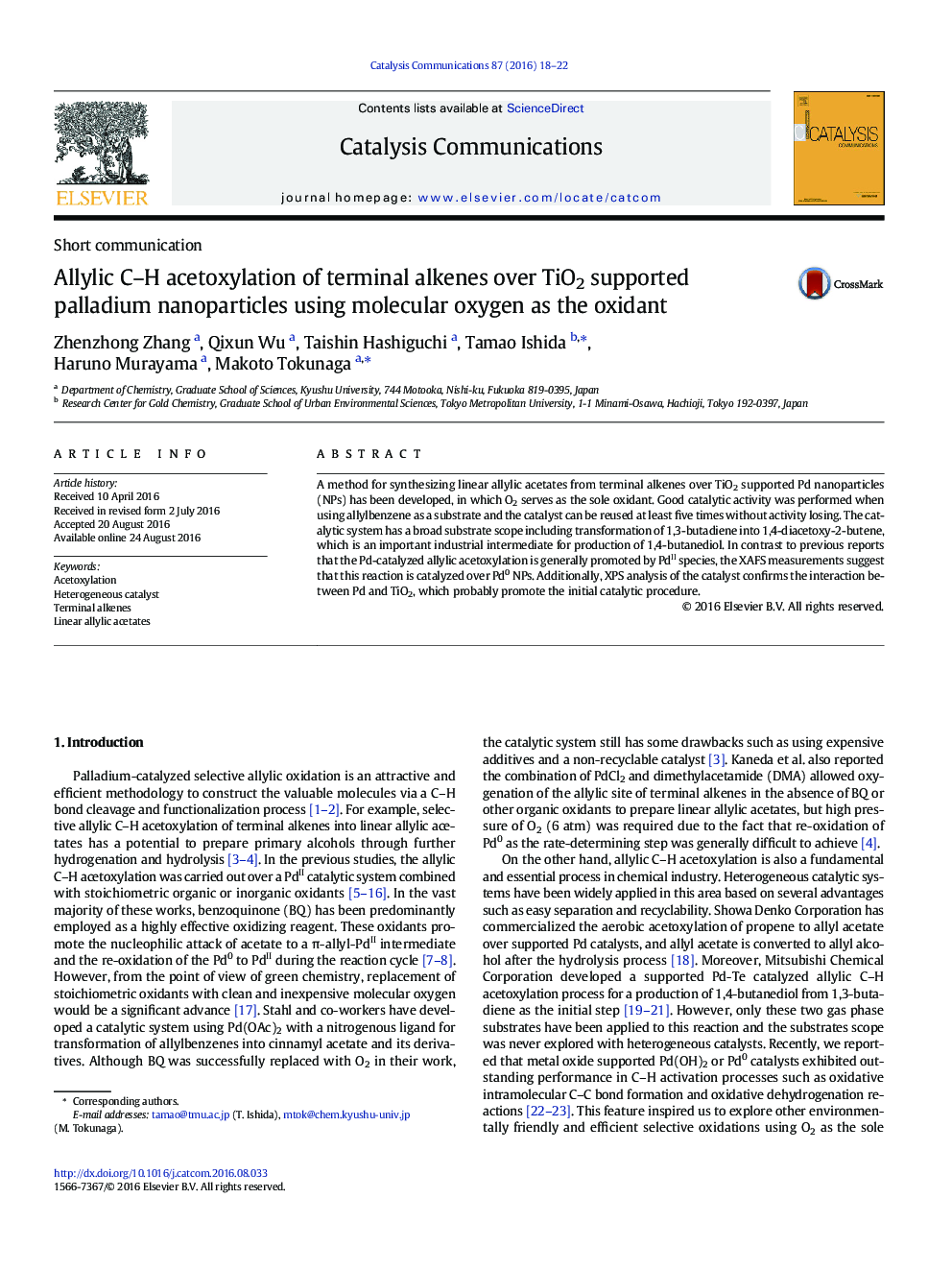| Article ID | Journal | Published Year | Pages | File Type |
|---|---|---|---|---|
| 6455151 | Catalysis Communications | 2016 | 5 Pages |
â¢Transformation of terminal alkenes into allylic acetates over Pd/TiO2â¢An oxidation process using molecular oxygen as the sole oxidantâ¢Achieving of excellent linear product selectivity and good catalyst recyclabilityâ¢Positively charged Pd NPs on TiO2 promoted the reactionâ¢The products are formed through the Ï-allyl-Pd intermediate
A method for synthesizing linear allylic acetates from terminal alkenes over TiO2 supported Pd nanoparticles (NPs) has been developed, in which O2 serves as the sole oxidant. Good catalytic activity was performed when using allylbenzene as a substrate and the catalyst can be reused at least five times without activity losing. The catalytic system has a broad substrate scope including transformation of 1,3-butadiene into 1,4-diacetoxy-2-butene, which is an important industrial intermediate for production of 1,4-butanediol. In contrast to previous reports that the Pd-catalyzed allylic acetoxylation is generally promoted by PdII species, the XAFS measurements suggest that this reaction is catalyzed over Pd0 NPs. Additionally, XPS analysis of the catalyst confirms the interaction between Pd and TiO2, which probably promote the initial catalytic procedure.
